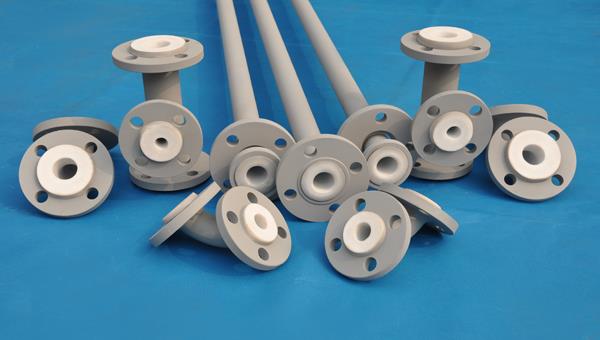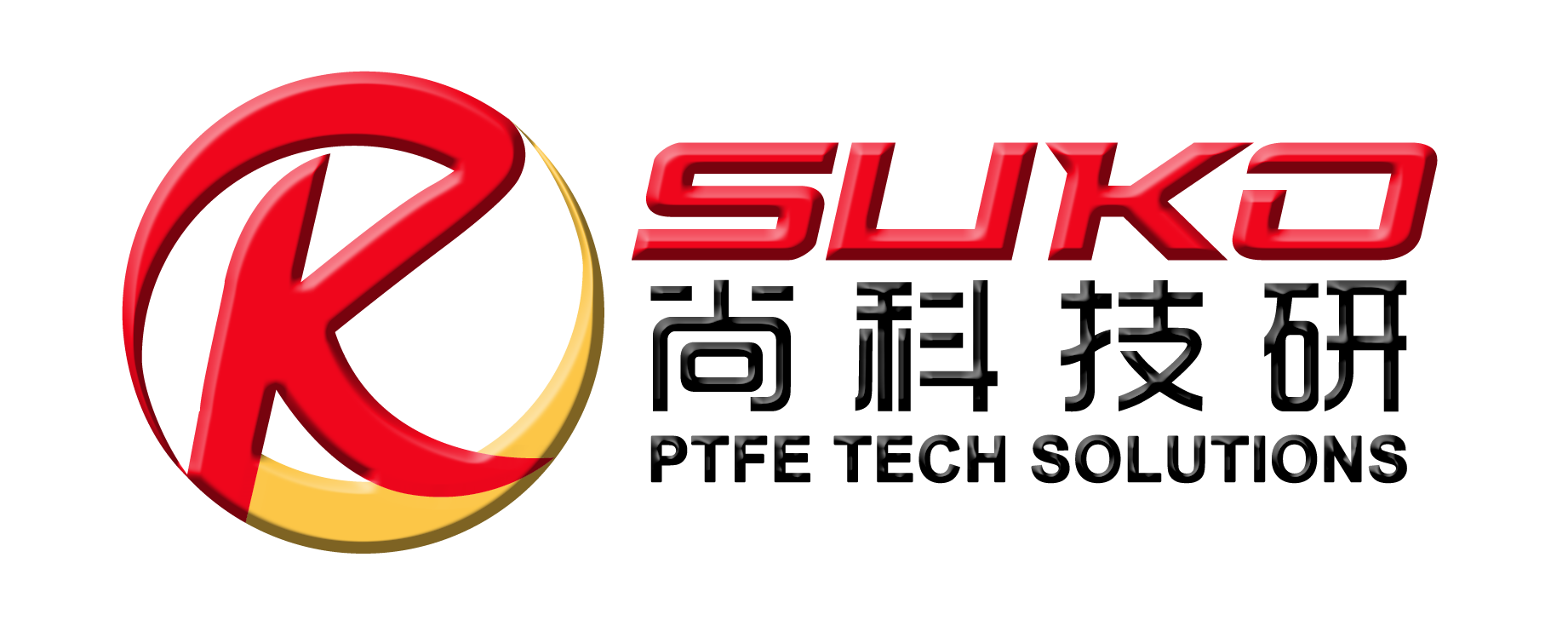PTFE PTFE lining high viscosity in the gel state (it does not truly melt) prevents it from being processed conventionally in extruders or injection molding. PTFE tubing is therefore dry molded or extruded in hydraulic extruders with (paste extrusion) or without (ram extrusion) lubricants. Paste extrusion of PTFE yields flexible tubing. However, it occurs in a batch process and thus long continuous lengths are limited to the batch size, unlike the melt-processible fluoropolymers FEP, PFA and ETFE.
PTFE is highly corrosion resistant and lined equipment is used to convey the most corrosive and toxic chemicals in manufacturing plants around the world.
This PTFE lining Extruder is to extrude PTFE lining,It keeps stable ram speed and produces precise high quality PTFE liner products. with our original technology. The PTFE liner ram extruder series from Sunkoo is able to extrude tube which dia from 20- 150mm.
 Advantages:
Advantages:
* Save time and money; * Advance designed; * High output; * Low energy consumption; * Long-life; * PC touch screen,extremely user-friendly operation; * The extrude PTFE tubes physical properties is stable and adjustable;
A PTFE liner, which is several millimetres thick, protects the stainless steel reactor efficiently against corrosion, even against such corrosive media as acids and alkali. PTFE is distinguished by its excellent resistance to almost all chemicals, which makes it possible to do without many expensive special alloys. This significantly reduces the acquisition costs.
The risk of possible cross-contaminations is easier to control with PTFE liners. Metallic catalysers, such as Pt, Rh, Raney Nickel etc adhere to steel reactors and are very difficult to remove. In the following experiments the question keeps cropping up if the effects observed are really caused by the change of catalyser, contamination effects or catalyst poisoning. This problem is elegantly evaded by reserving a PTFE liner for each type of catalyser.
Post time: Nov-03-2017

